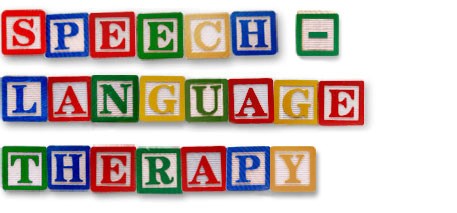Services

The Early Childhood Special Education Program provides an individualized approach to instruction for children from birth to school age. The child must demonstrate a developmental delay or disability to be eligible for services.
Acquisition of skills is monitored to show gains while in the program. The program stresses:
-
Concrete, manipulative, and sensory teaching methodologies, including movement.
-
A sequenced developmental approach to learning.
-
A collaboration of multiple disciplines to address a variety of skills
-
The belief that parents can help reinforce learning in the home and school, is a parent/school partnership.
All Early Childhood Special Education locations provide for interdisciplinary team planning, interagency involvement as appropriate, transition activities to prepare for the next program needs, and parent engagement activities.

Speech-Language Therapy
Sarah Montandon
Speech-Language Pathologists (SLP) in the school setting diagnose and treat children through special education. The SLP works with children from birth to age 21. They work with children who demonstrate receptive and/or expressive language, articulation (production of speech sounds), fluency/stuttering, voice, and swallowing disorders. A speech-language pathologist may be a part of a team for a child with hearing loss, cleft palate, cerebral palsy, learning disabilities, autism, down syndrome, developmental delays, or traumatic brain injury. Children are identified as having difficulty in these areas through routine screenings and parent and teacher referrals.
The school district offers free screenings throughout the year and appointments can also be set up with the SLP by calling the school.
Helpful Links
American Speech Hearing Association:
Developmental Articulation Norms: www.mpsaz.org/entz/staff/sabevier/.../files/iowa_artic_table
Developmental Speech/Language Milestones:
Physical therapy is provided to a student if assistance with motor function such as walking or sitting up tall is needed to learn in the classroom or school. Physical therapists can work one on one with a student or may consult with school staff. A student must qualify for special education and have a functional need to receive physical therapy. A school team comes up with a plan that can help the student with motor skills so to function and learn in the school environment.
Hill City School also provides physical therapy to those children under the age of 3 with more severe developmental needs that reside in the school district.
ABCs of Pediatric PT and Fitness: Resources for Young Children (Consumer Resources)
Gross Motor Milestones
http://www.kidscando.org/milestones-grossmotor.htmlOccupational Therapy
Nicole Sowards
Occupational Therapy (OT) in the school setting addresses concerns related to fine motor functioning, sensory processing, visual motor and visual perceptual skills, self-care skills/activities of daily living, social skills, cognitive skills and executive functioning that relate to being a student within the classroom and throughout the school. OTs use meaningful activities (occupations) to help students participate in what they need and/or want to do in order to promote physical and mental health.
Throughout the school year, OTs in the school setting constantly collaborate and consult with a child’s teacher, parents, and other professionals on the IEP team to ensure that skills are being introduced, practiced, and generalized across the school environment.
A child can be referred to Occupational Therapy for a free screening or evaluation through special education if there are concerns related to their “occupation” of being a student that relate to the physical, cognitive, psychosocial and sensory components of performance.
Helpful Links:
American Occupational Therapy Association
Handwriting Without Tears
https://www.lwtears.com/freeresources
Star Institute (Sensory Processing)
https://sensoryhealth.org/basic/understanding-sensory-processing-disorder
Star Center for Sensory Processing – Parent Information
Developmental milestones for Fine Motor & Visual Motor skills birth to 8 years old
http://www.childdevelopment.com.au/hand-dexterity-fine-motor-skills/188